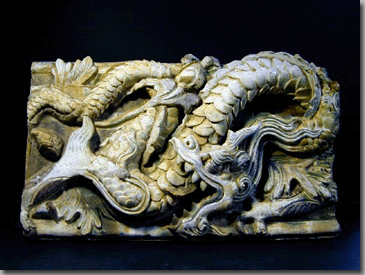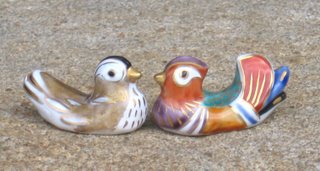© 5000art.com
http://www.5000art.com/e-shop/featured_items/42.htm
:::::::::::::::::::::::::::::::::::::::::::::::::::::::::::::::::::::::::::::::::::::::::::::::::::::
Roof-tile of Carp Leaping form Dragon Gate

Ming dynasty ( 1368-1644 AD )
24.40 in. x 14.20 in. ( 62 cm x 36 cm )
This is a very special Ming Sancai piece, a carp leaping from dragon gate, decorated with lotus.
This was a luck symbol in the ancient China.
The tradition Chinese scholar spent years studying the ancient classics and philosophical books. in hopes of passing the Civil Service Examination ( kou-zi ).
When one passed the examination, he was allowed to enter government service to get a official position.
To a civil person, this is the only key to entrance into a life of privilege, social status, politics and aesthetics.
This was described as a carp leap from the dragon gate.
ooo ooo ooo ooo ooo ooo ooo ooo ooo
Click HERE to see more roof tiles with DRAGON
:::::::::::::::::::::::::::::::::::::::::::::::::::::::::::::::::::::::::::::::::::::::::::::::::::::
Daruma Museum, Japan








No comments:
Post a Comment